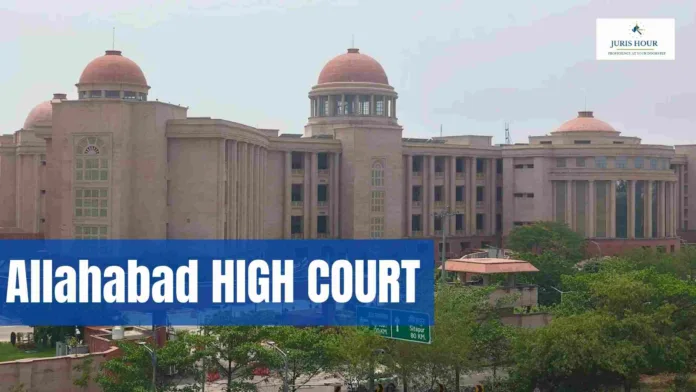The Lucknow Bench of the Allahabad High Court noted that a GST officer could not read GST law in court and quashed the order and sent him for 3-month training.
The Bench of Justice Sangeeta Chandra and Justice Brij Raj Singh has come down heavily on the State Tax Department for issuing a penalty order against a construction company without properly serving notice to the actual owner of the goods.
The Bench found the conduct of the tax authorities questionable. The judges directed Assistant Commissioner Ramesh Kumar to personally appear before the Court on the next date of hearing, August 21, 2025, and explain how he concluded that notices were served when no evidence was placed on record.
Thus when the officer has appeared, the court found that he apparently does not know anything about the Act and perhaps even he has not read the provision under which he has taken the action. He says that he has been promoted on the basis of seniority only in January, 2025 on the post of Assistant Commissioner.
The petitioner/assessee, M/s MLV Constructions, challenged the seizure of its machinery and the subsequent penalty imposed under the Goods and Services Tax (GST) regime.
According to the petition, the company was transporting machinery from its Rajasthan office to its Bihar office with a valid e-way bill. However, the e-way bill expired on June 19, 2025, and the vehicle was intercepted two days later, on June 21, 2025, in Lucknow.
The tax department issued notices only to the driver and transporter, and not to MLV Constructions — the consignor and consignee, who are considered the true owners of the goods under Section 129(1)(a) of the CGST Act. The company argued that since it never received any notice, it was denied the opportunity to present its case, and the penalty order was wrongfully passed.
Representing the government, Additional Chief Standing Counsel Rajesh Tiwari submitted that instructions from the Assistant Commissioner (Mobile Squad-I), Ramesh Kumar, claimed that notices had indeed been issued to the consignor and consignee but no reply was received. Consequently, the department proceeded ex parte and passed the MOV-09 order against the driver.
The court noted that since the impugned orders have been passed in clear violation of the provisions of Section 129(3) of the Act, the same are liable to be set aside.
The court allowed the writ petition and quashed the Order.
The court directed the department to issue a show cause notice as per the provisions of Section 129(3) of the Act. The show cause notice shall be sent through Registered Post and also on SMS and e-mail of the assessee/consigner/consignee. The petitioner, who is the consigner/consignee, shall reply to such notice within time as given under the Act. After such a reply is submitted, it shall be considered and a reasoned and speaking order shall be passed. If there is any requirement for penalty to be imposed, then personal hearing shall be given to the petitioner/consigner/consignee.
Case Details
Case Title: M/S Mlv Constructions Versus State Of U.P.
Case No.: Writ Tax No. – 752 Of 2025
Date: 21.8.2025
Counsel For Petitioner: Manish Misra
Counsel For Respondent: C.S.C.
Read More: Can A Government Scrap An Ongoing Recruitment Midway Just By Issuing A Policy? Supreme Court

